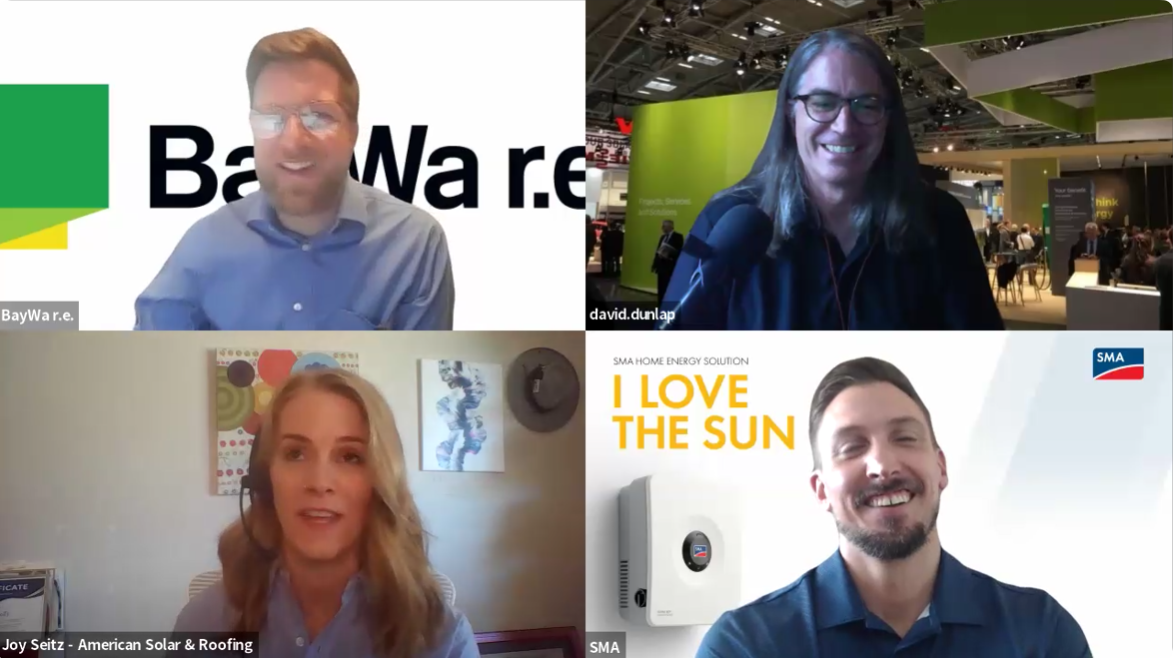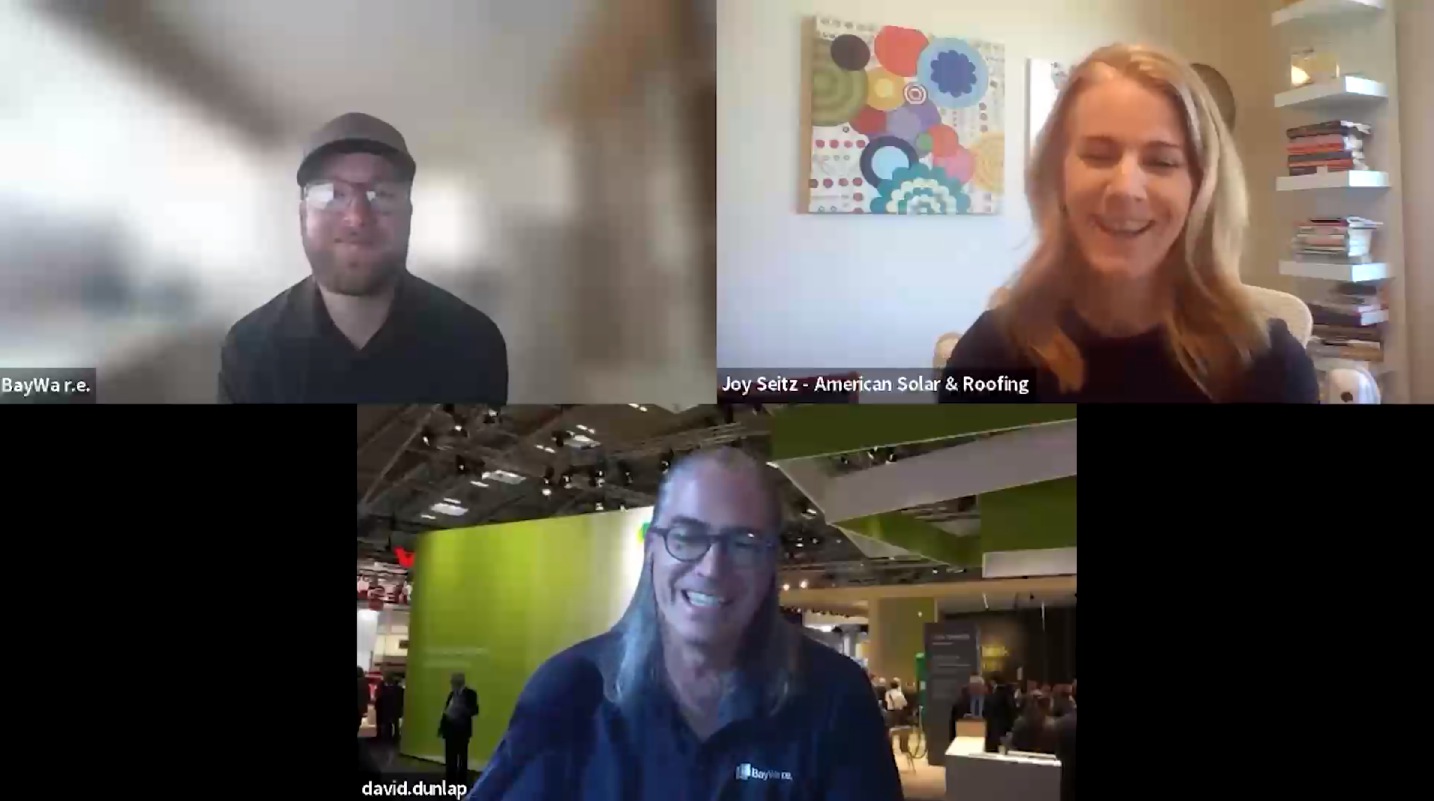The rapid growth of our solar installation industry has created an interesting tension on the front of electrical codes and inspections. Technological and safety specifications that have faced only occasional disruption since the time of Edison and Westinghouse are now challenged by yearly innovations in PV modules, smart inverters, and now storage and charging. Contractors are eager to innovate ahead of existing code, while over-burdened inspectors might not be versed on alternative solutions that check the compliance box.
Looking for best-in-class products, service, and a partner you can count on?
Exploring how contractors can take a proactive approach in understanding safety code — including working with code-setting committees and inspectors — was the theme of this week’s #SolarTownHall.
Rebekah Hren on how easy it is to get involved in code making and where/how you can provide input.
Ryan Mayfield on what contractors can do to help educate code officials.
Matthew Paiss brings 20-plus years’ experience as a fire captain to his present role with the Pacific Northwest National Laboratory. Paiss mentioned battery storage as one area where technology and design have had to account for safety objectives. “So when rapid shutdown was first developed, we had to clearly delineate where the boundary is for a PV system, versus an energy storage system, because the energy storage system that might be there for backup does not know if a firefighter has shut off the main breaker, or if the grid has dropped due to a tree down the line,” said Paiss. “And we wanted that backup system to continue to be able to operate. So, the original discussion was a separate initiation of a shutdown of the battery was acceptable.” Both code setters, manufacturers, and designers must work together towards common goals.
Vaughan Woodruff on “asking permission rather than begging forgiveness” with local code officials.
And so do contractors and designers. Vaughan Woodruff, Founder and CEO of Insource Renewables in Maine, has worked on the code-setting side as well. Woodruff says building relationships with inspectors is key, especially in rural markets where there isn’t a critical mass of solar projects and expertise. “We may have a project where there’s something that’s out of the ordinary and asking permission, versus begging forgiveness, is something that code officials like a lot. And I think that it it’s inherently in your best interest to do it,” said Woodruff. “Especially in markets that are aren’t mature, where you don’t have general code and official knowledge across the board — if you can become a contractor that those code officials lean on for interpretation, that’s the gauge of how well you formed those relationships.”
Vaughan Woodruff on cultivating relationships with officials and your community.
The August 26 Solar Town Hall was packed with even more audience questions and scenario discussions, so listen to the whole playback for every piece of advice and perspective we explored in our limited time. As a closing, Matthew Paiss encouraged contractors to not be frustrated by code tensions. “If you’re encountering an AHJ (authority-having jurisdiction) that’s incorrectly interpreting the code, bring that to the local SEIA chapter,” suggested Paiss. “Don’t let heels dig in. Get an intermediary.” Because no matter the challenge or innovation required, at the end of the day, as Rebekah Hren reminded all, the question is, “Is it safe?” Indeed, that is our duty as solar professionals — to our customers, our community, and our planet.
Featured guests:
Scroll down to watch, listen, and share the video and podcast with your colleagues. Thank you all again for participating in our Solar Town Hall events and being part of our solar community!
Missed one of our events? Access all of our expert roundtables in our Solar Town Hall archives, find video excerpts on YouTube, and take podcast versions with you on the go via Spotify, Apple, or Google.
BayWa r.e. Solar Systems LLC supplies residential and commercial solar installers in the United States with quality solar + storage components, forecasting, business planning advice, and a community of experts. Visit www.solar-distribution.com to read our industry insights articles and stream our Solar Tech Talk and Solar Town Hall podcasts on YouTube and Spotify. Follow us on LinkedIn, Twitter, and Facebook to stay connected. Ask us about our Split Pay financing program and use our industry-leading Webstore to save time, get gear shipped, and get jobs done! Part of the BayWa r.e. Global family of renewable energy companies.




